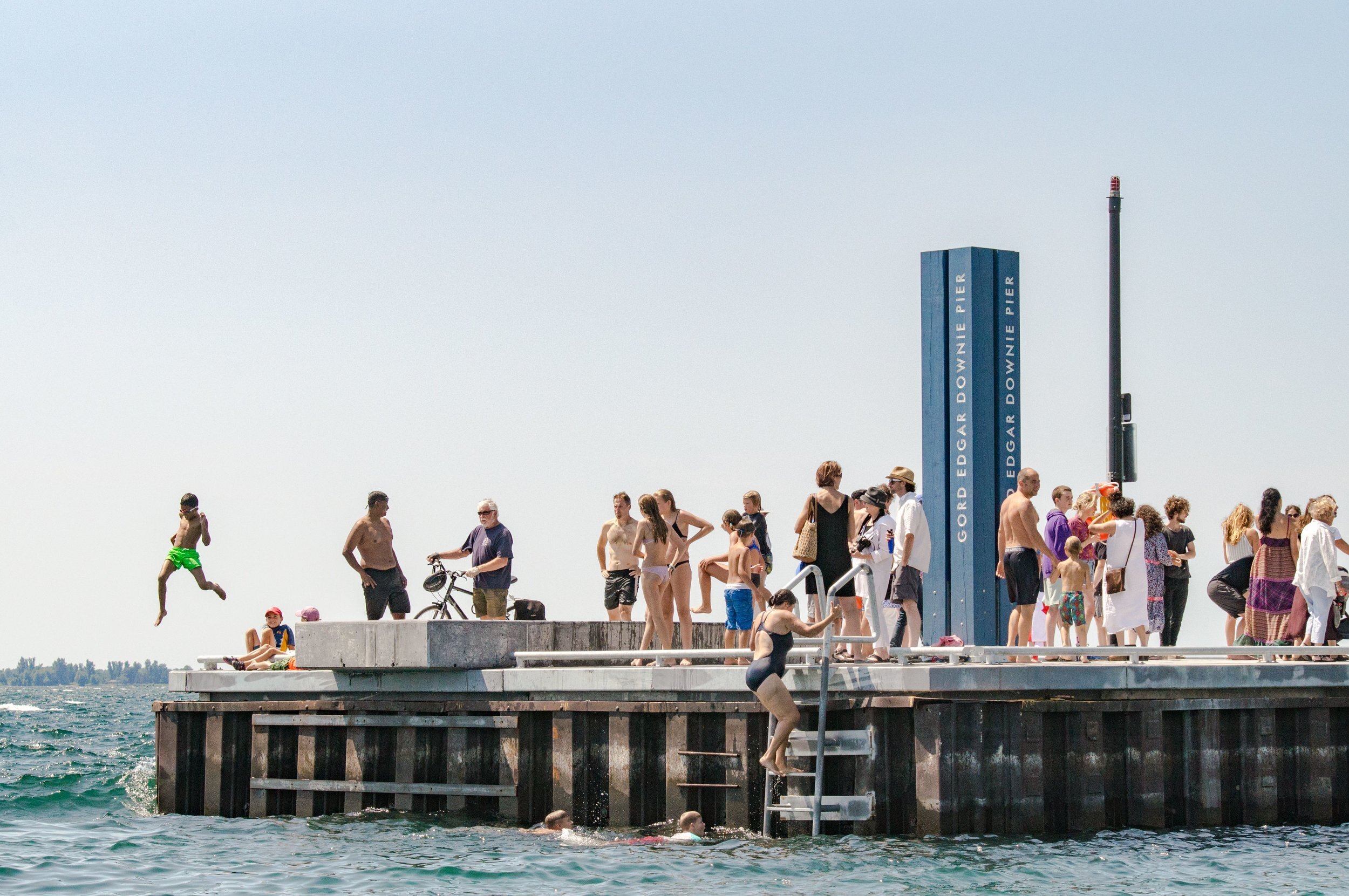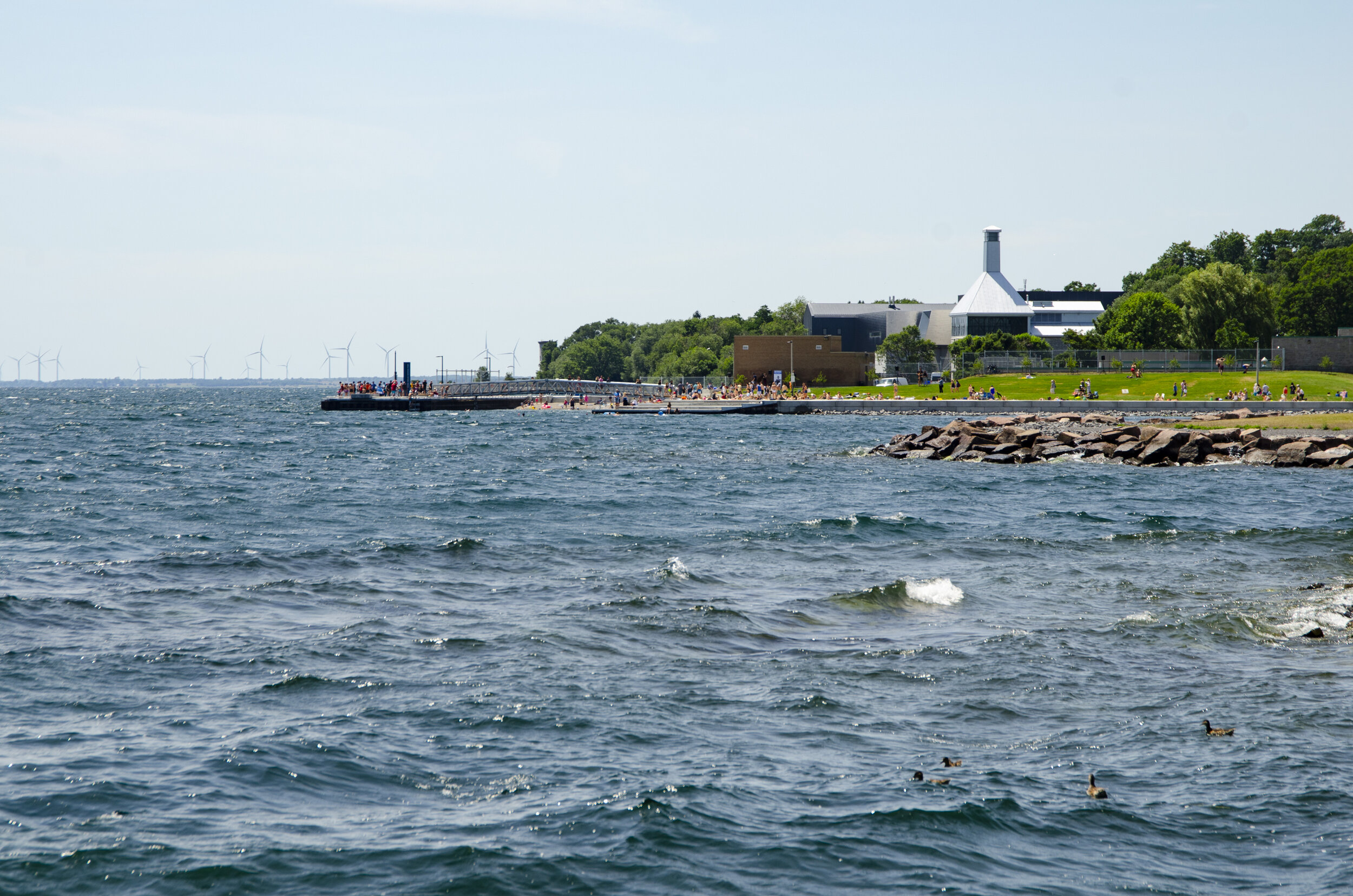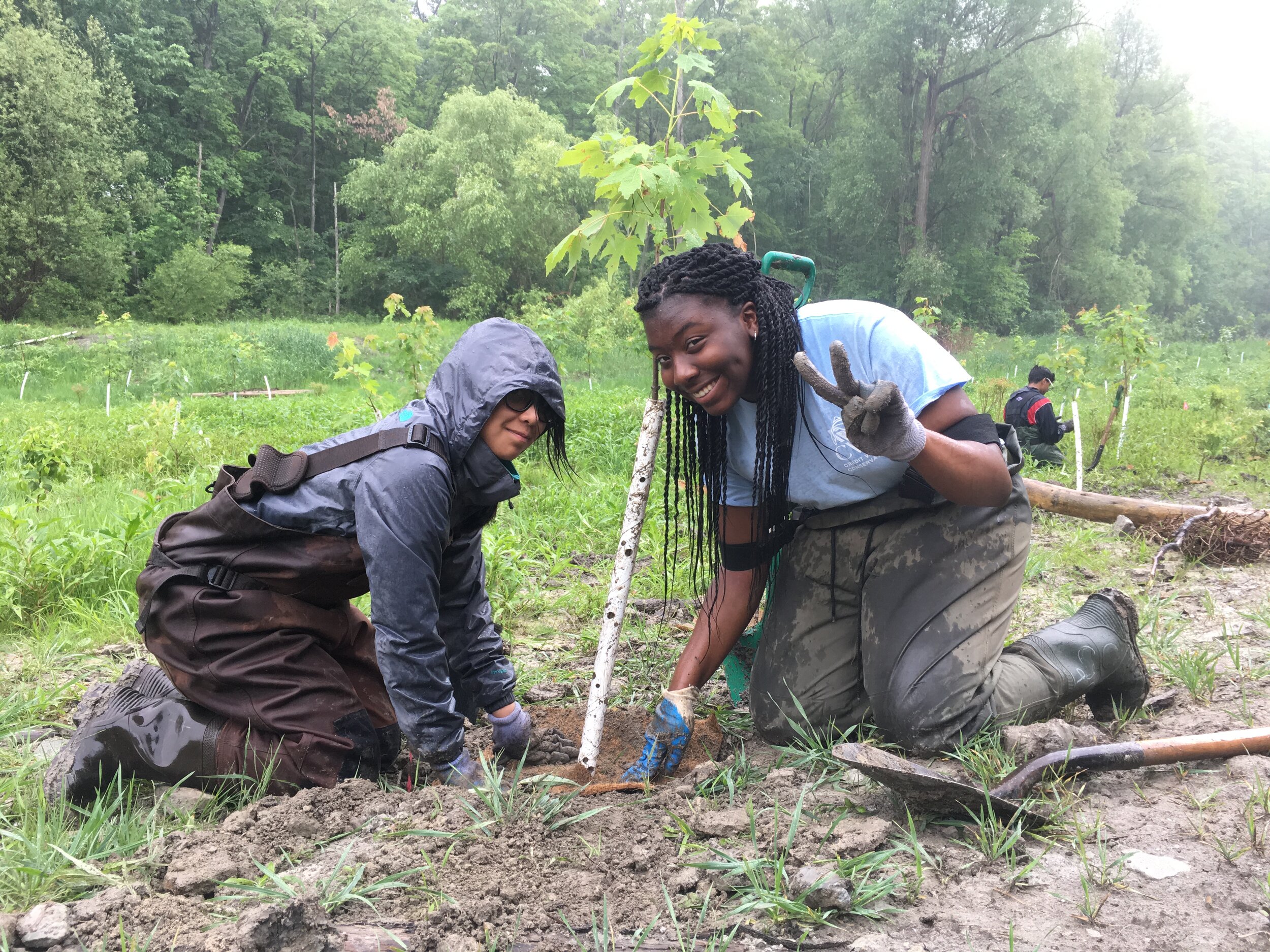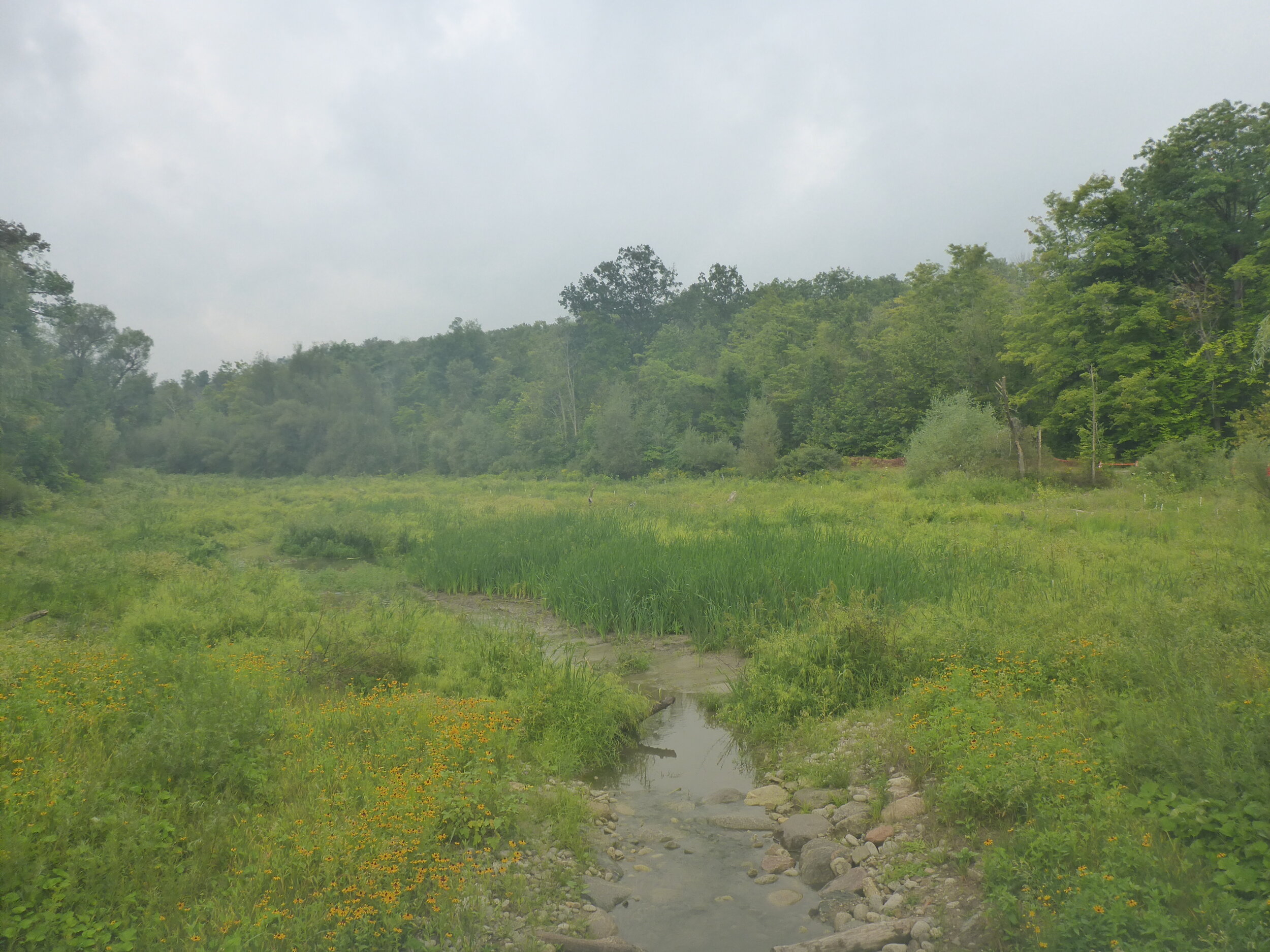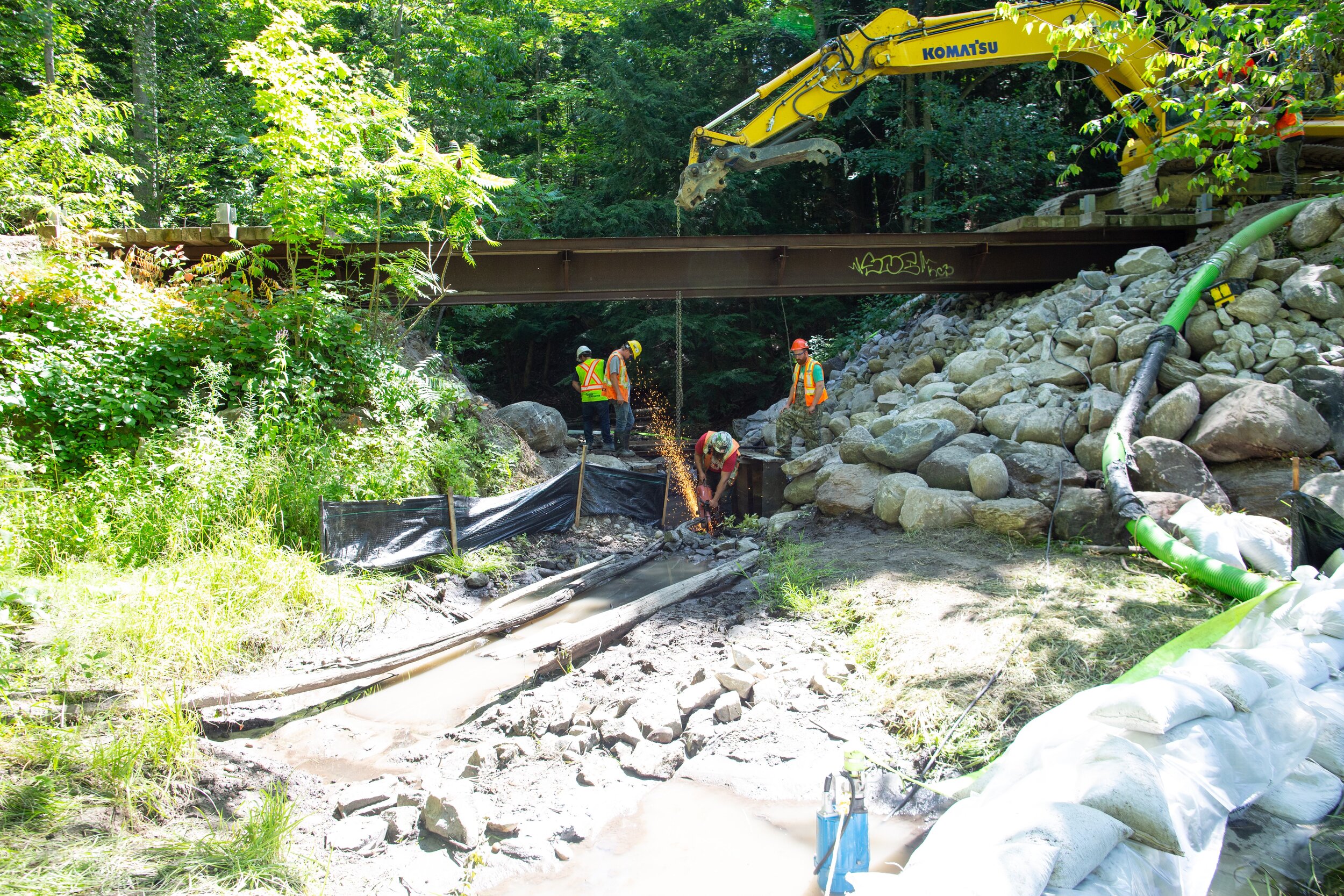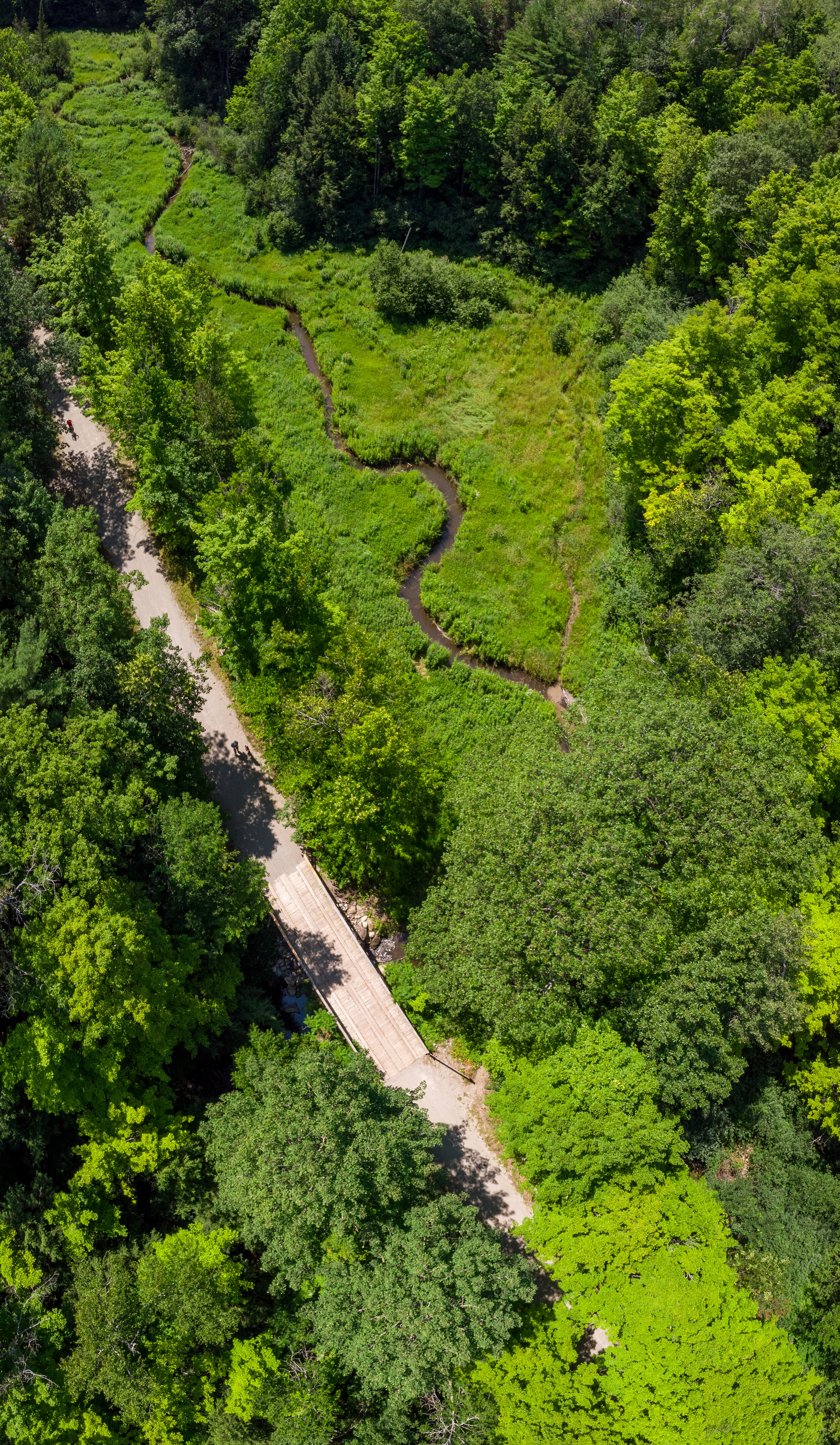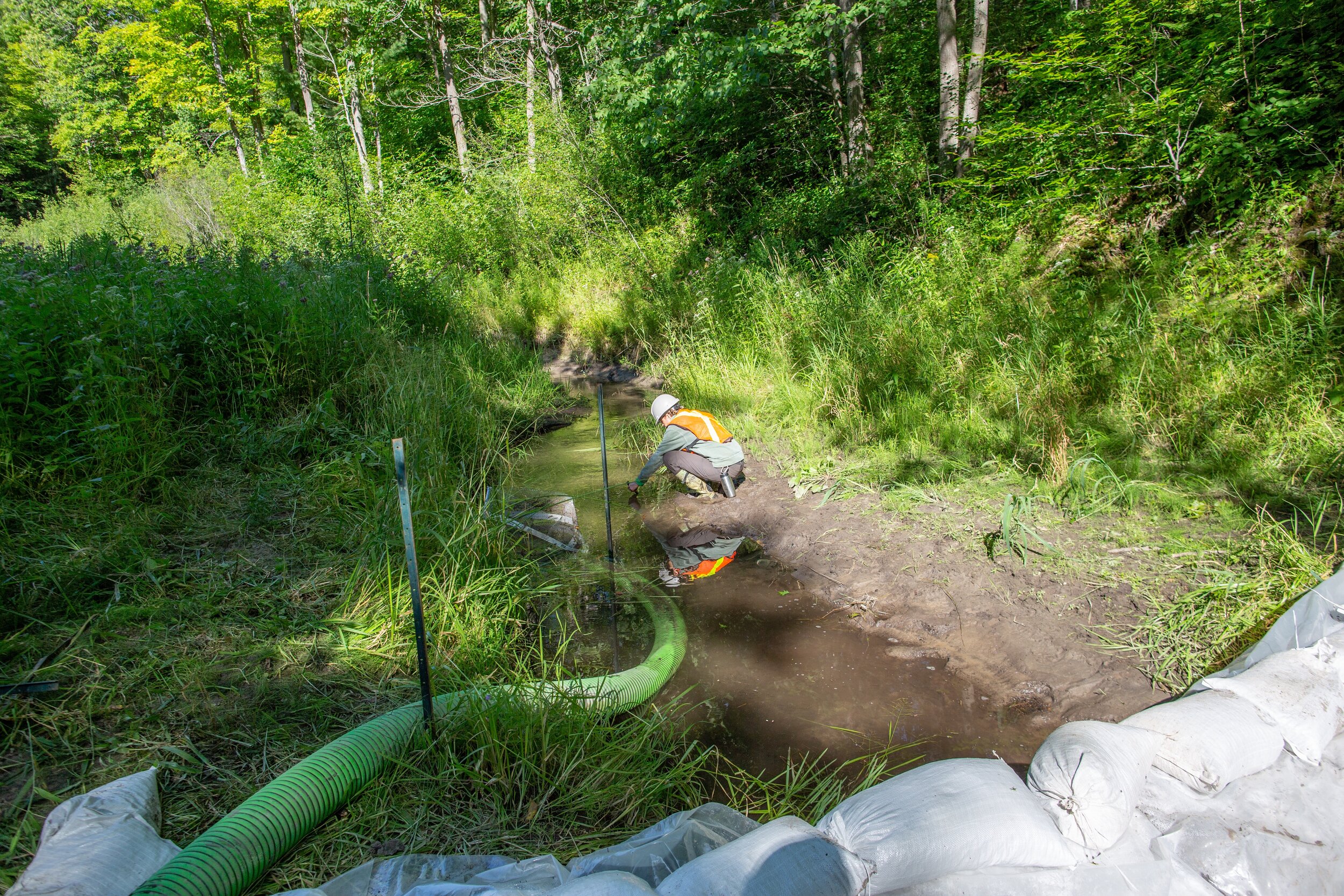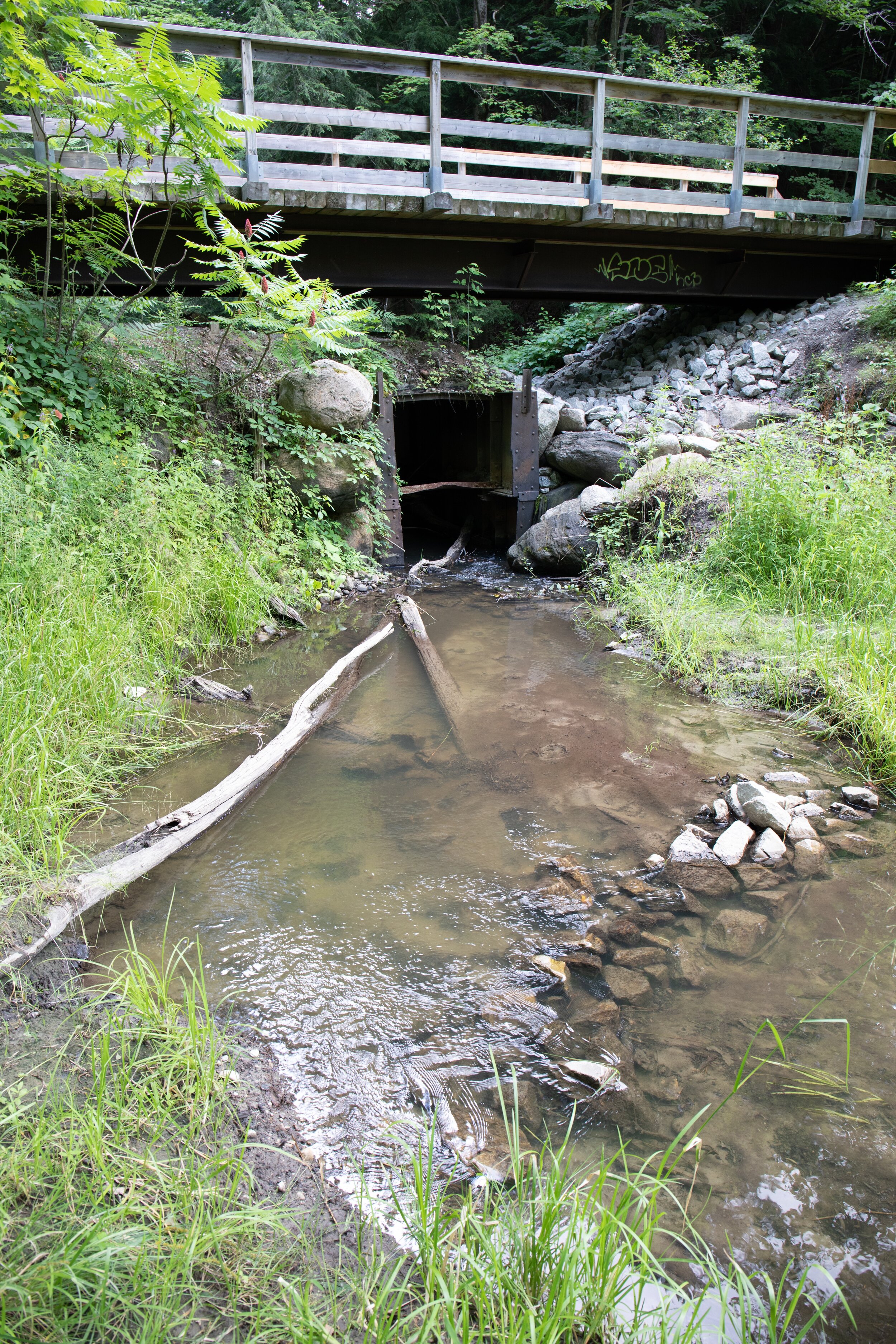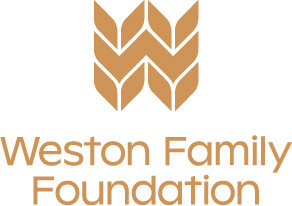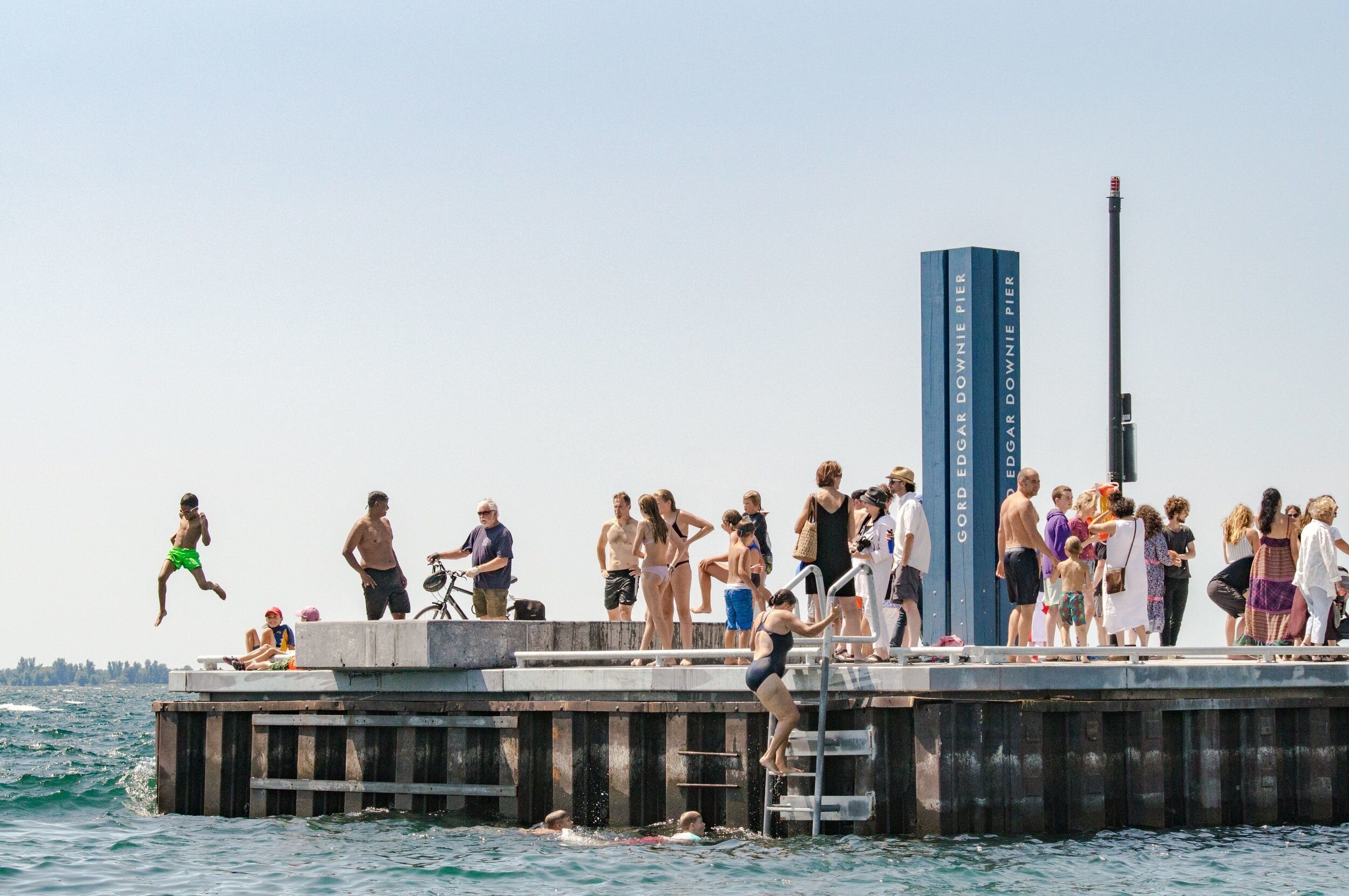
Restoration
The Weston Family Great Lakes Challenge is a multi-year initiative to restore swimmable, drinkable, fishable waterfronts across the Great Lakes.
The initiative is made possible by the generosity of the Weston Family Foundation.
Beginning in 2017, the Weston Family Foundation committed $2.25 million to nine restoration projects selected by Swim Drink Fish. This visionary restoration program will increase the number of places you can connect with the Great Lakes and experience natural habitat close to home.
The Great Lakes are the largest freshwater system on the planet and have been in decline for centuries. Through this initiative, Swim Drink Fish challenges communities to dream about an era of restoration.
Every Great Lakes Challenge project is spearheaded by local partner organizations, including non-profits, Conservation Authorities, and municipalities. Swim Drink Fish selected restoration projects that would address some of the Great Lakes most pressing needs: new habitat, improved water quality, and increased waterfront access for local residents.
The result is inspiring. The Great Lakes Challenge represents one of the largest private contributions to Great Lakes restoration. Local partners are showing how hard work, community engagement, and leadership can win back lost spaces and restore threatened species. Each project will improve quality of life for thousands of residents for decades to come.

The Great Lakes are the largest freshwater system on the planet and have been in decline for centuries. Through this initiative, Swim Drink Fish challenges communities to dream about an era of restoration.
Great Lakes Challenge projects:
Gord Edgar Downie Pier at Breakwater Park in Kingston, Ontario
The Gord Edgar Downie swimming pier is a flagship Great Lakes restoration project. It has become one of Lake Ontario’s top swimming destinations. Swim Drink Fish and the City of Kingston unveiled the pier on July 26, 2018. The Gord Edgar Downie Pier was part of a wider upgrade to the surrounding Breakwater Park. Water quality has been restored, along with safe water access, a naturalized shoreline, and green space for residents to enjoy. In the first year after its opening, more than 150,000 visitors enjoyed the pier. Find the Gord Edgar Downie Pier on Great Lakes Guide.
Project status: Complete
Project partners: City of Kingston, Utilities Kingston
Great Lakes Challenge contribution: $500,000
Second Creek at Terra Cotta Conservation Area in Caledon, Ontario
Terra Cotta Conservation Area is a Great Lakes destination with a fascinating history. Decades ago, Second Creek and the nearby wetland were dramatically modified to create a “natural swimming pool” inside the conservation area. It was an attempt to make nature more accessible to the public.
This project was an exciting chance to restore free flow to Second Creek, which flows into the Credit River. Free-flowing water would improve water quality and natural habitat. It would also encourage the return of Brook Trout to the area.
During restoration, Credit Valley Conservation removed a dam and allowed Second Creek to forge a natural path through the conservation area. CVC reconnected 2.5 kilometers of Second Creek to the Credit River, which flows all the way to Lake Ontario. The Credit Valley Conservation’s Frontline Youth Corp assisted the restoration process by planting native vegetation along Second Creek’s shoreline to stabilize the banks and create habitat for fish.
Project status: complete
Project partners: Credit Valley Conservation
Great Lakes Challenge contribution: $100,000
Save the Redside Dace in the Greater Toronto Area
The Redside Dace is Ontario’s leaping minnow. It uniquely jumps out of the water to eat insects flying above the surface - the only fish of its kind to do this. To survive, the Redside Dace needs two things: cool, clean water with natural eddies, and riverbanks with overhanging vegetation. These are also indicators for a healthy stream.
Sadly, clean, natural streams are rare in the Greater Toronto Area, and the Redside Dace is an endangered species. Eighty per cent of the Redside Dace population lives in Lake Ontario’s western tributaries. Its survival depends on our ability to protect streams in the Greater Toronto Area.
To jumpstart restoration efforts, Swim Drink FIsh partnered with Ontario Streams to reverse years of habitat damage.
This project restored habitat in the Credit River watershed (Huttonville Creek, Fletcher’s Creek, Spring Brook Creek), the Humber River Watershed (Kilmanagh Creek, Lyndsay Creek), the Don River Watershed (Robinson Creek, East Don River, Patterson Creek), the Rouge River, and Lynde Creek in Whitby. More than 3,600 native shrubs were planted, 36 in-stream debris jams removed, 44 in-stream structures installed, and 2,721 volunteer hours spent restoring Redside Dace habitat.
Project status: complete
Project partners: Ontario Streams, Toronto Zoo, Kidoons Network
Great Lakes Challenge contribution: $215,000
Making Lake Ontario swimmable again in Toronto, Burlington, and Prince Edward County
When we created the Great Lakes Challenge, we found only one active project dedicated to restoring access to swimmable water in all of southern Ontario: the Gord Edgar Downie Pier in Kingston. The pier’s success proves people want more access to the Great Lakes and that habitat restoration and water access can go hand in hand.
A portion of Great Lakes Challenge funds were invested into swimmable water investigations. We wanted to better understand the cause of water quality concerns in recreational hotspots in Burlington, Toronto, and Kingston. We developed a method for community science investigation, documentation, and a formula for identifying restoration options.
This work attracted Environment and Climate Change Canada’s attention; the federal government awarded Swim Drink Fish a four-year grant to develop community monitoring hubs in six Great Lakes communities.
Project status: complete
Project partners: Swim Drink Fish
Great Lakes Challenge contribution: $30,000
Frenchman's Bay wetland in Pickering, Ontario
The City of Pickering accepted the Great Lakes Challenge to restore Frenchman’s Bay, home to a provincially significant wetland. This project focused on removing invasive species and providing public waterfront access in Frenchman’s Bay West Park. Since reopening in October 2018, over 70,000 people visited the park in the first year.
As Pickering’s population continues to grow, waterfront access will become increasingly in-demand and the newly-restored trail and wetland will help protect quality of life in the area.
Project status: ongoing (phase II shoreline restoration)
Project partners: City of Pickering
The W. Garfield Weston Foundation contribution: $200,000
Peche Island restoration on the Detroit River in Windsor, Ontario
Peche Island is a natural gem in the City of Windsor. It is a refuge for endangered species and recreational water users. Decades of erosion have washed away habitat for fish species like lake sturgeon and northern madtom. The Great Lakes Challenge funding will help construct “rock reefs” on Peche Island’s north shore. These reefs will prevent erosion damage from shipping traffic and create new fish habitat. Find Peche Island on Great Lakes Guide.
Project status: ongoing (construction scheduled for 2020/2021)
Project partners: Detroit River Canadian Cleanup, Essex Region Conservation Authority
Great Lakes Challenge contribution: $200,000
Copeland Creek restoration in Township of Tiny, Ontario
Along The Great Trail (formerly the Trans Canada Trail), you’ll cross over Copeland Creek in the Township of Tiny. The trail crosses the creek at a site known as Bridge P5. This project restored the creek’s free flow by removing a decades-old box-culvert under the bridge. Fish can now access 5.4 kilometers of newly-restored habitat.
The project is also a demonstration of the way small-scale infrastructure improvements can have large-scale benefits. There are thousands of culverts all over rural Ontario that restrict streams and prevent fish from accessing their traditional habitat. Municipalities can “unlock” huge areas of natural habitat by making changes at bottleneck points like Bridge P5.
Project status: complete
Project partners: Severn Sound Environmental Association, Township of Tiny
Great Lakes Challenge contribution: $130,000
Jim Tovey Lakeview Conservation Area in Mississauga, Ontario
This multi-year project is in the process of re-naturalizing 1.5 kilometers of shoreline along Lake Ontario. When it opens in 2025, the Conservation Area will become a community hub for waterfront recreation. New wetland habitat will replace the hardened shoreline once dominated by a former coal-fired power plant.
One of the main reasons Swim Drink Fish selected this project is its ambition. Great Lakes Challenge funds support the creation of natural habitat to support thriving fish and bird populations in the heart of one of Canada’s largest cities. We’re also supporting innovative water quality modelling work that will help us better understand the relationship between habitat restoration and water quality.
Local artists are helping document the creation of the Jim Tovey Lakeview Conservation Area. Look for the next Morphology photo exhibit in 2021.
Project status: ongoing
Project partners: Credit Valley Conservation, Toronto and Region Conservation Authority, Region of Peel
Great Lakes Challenge contribution: $350,000
Lakeview Park restoration on Lake St. Clair in Lakeshore, Ontario.
Lakeview Park is a public park in the heart of the Town of Lakeshore on Lake St. Clair. Currently, poor water quality deters people from swimming and fishing in the area. Removing invasive vegetation, like phragmites, and other debris from the waterfront will dramatically improve water quality. Find the park’s West Beach on Swim Guide.
Project status: ongoing
Project partners: Town of Lakeshore
Great Lakes Challenge contribution: $150,000
Great Lakes Challenge partners:
Thank you to all our restoration project partners. These projects would not be possible without you.
Inspired by the Great Lakes Challenge, Muskoka Brewery is contributing to more Great Lakes restoration projects beginning in 2020. Click to learn more about Swim Drink Fish’s partnership with Muskoka Brewery.
Click to learn more about our partnership with the Weston Family Foundation.

